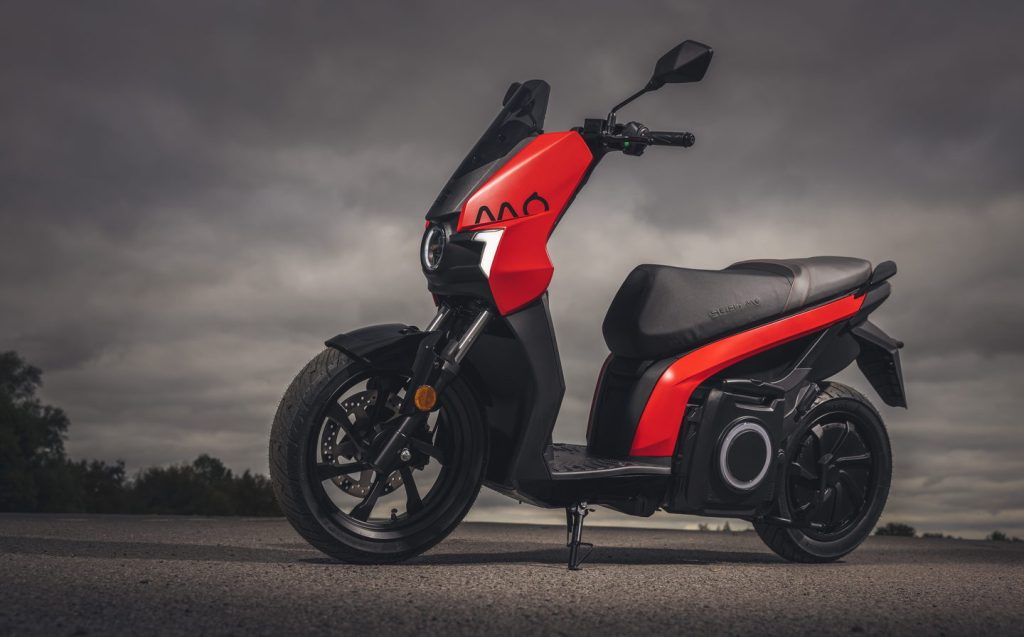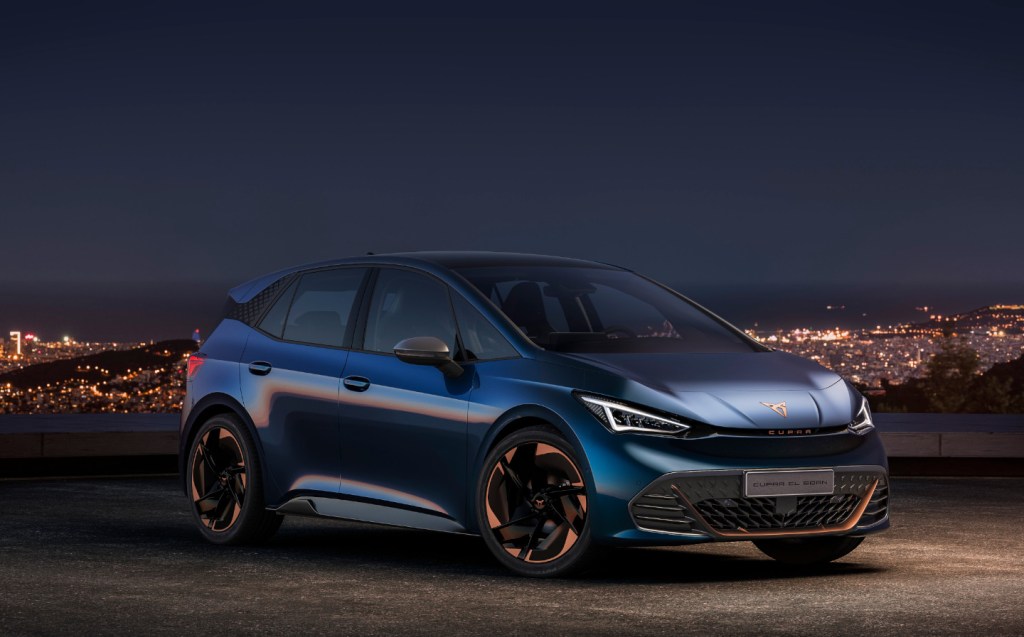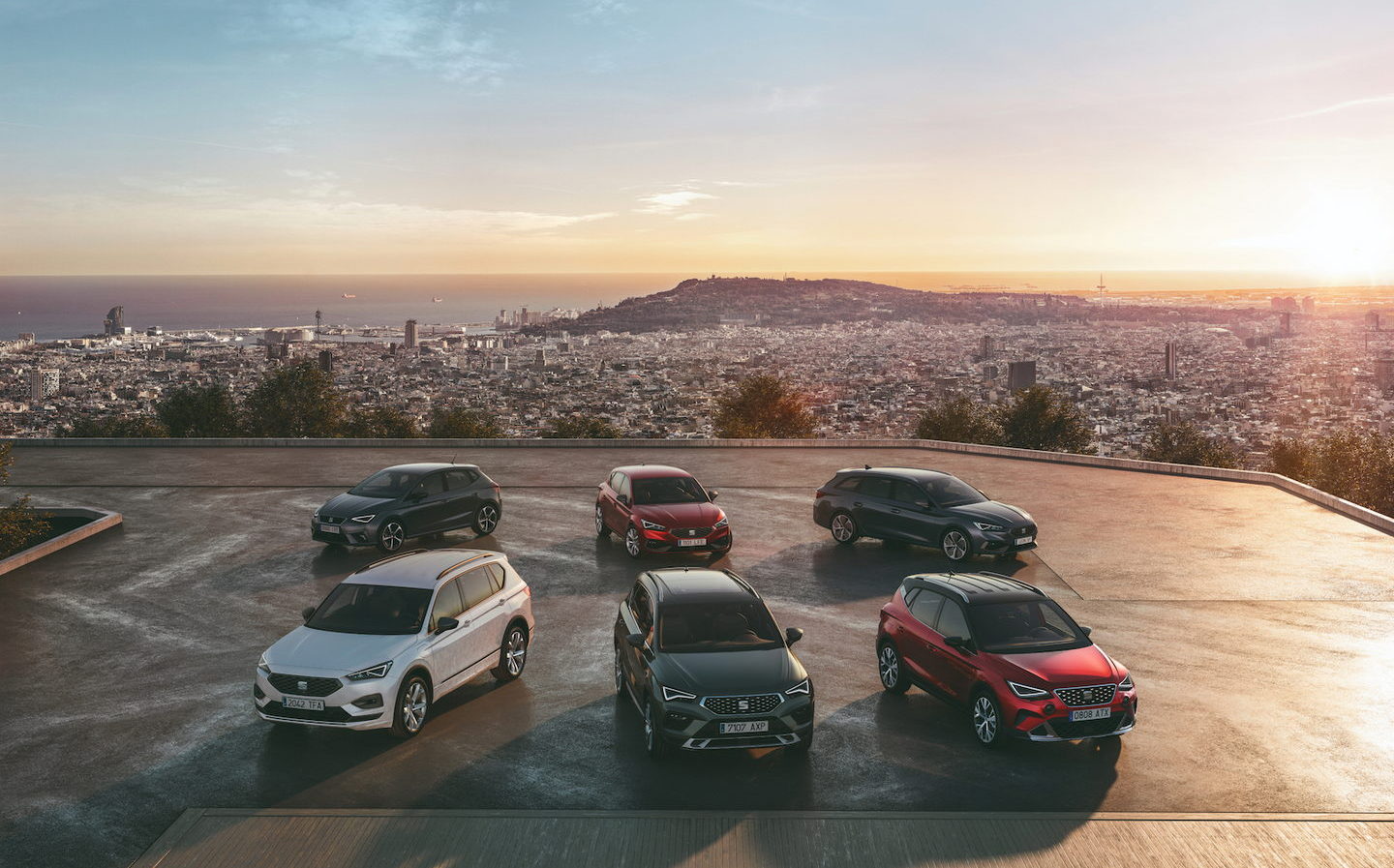Spanish brand Seat to stop making cars by 2030, CEO confirms
New role to be found for the Seat brand
A clarification has been made since this news story was reported, suggesting Schäfer’s comments were misinterpreted. Schäfer wrote on LinkedIn: “Demand for SEAT remains at very high levels and sales this year to date have grown 18%, reaching nearly 200,000 cars sold. Customer order banks for SEAT core models Ibiza, Arona and Leon are at record levels. At the same time, the brand is planning to update these three models to continue offering super-efficient ICEs and also PHEVs with the successful Leon.”
The chairman of Spanish manufacturer Seat has confirmed that the company will no longer produce cars after the current crop of models reach the end of their life cycles.
Thomas Schäfer said “the future of Seat is Cupra”, indicating all car-making resources will go into the performance and electric vehicle (EV) brand that spun off from Seat in 2018. He added that dwindling sales of Seat-badged vehicles, coupled with the strong growth of the Cupra brand across Europe and further afield, meant it was not financially viable to invest in both of the Spanish companies in future.
Schäfer did confirm that the Seat name would not be discontinued, as parent company the Volkswagen Group would “find a different role for it”, while also offering reassurance that investment in the successful Cupra marque would be “ramp[ed] up” in the near future, ensuring that there will remain strong Iberian representation in the wider group.

It is thought that Seat might pivot to become a manufacturer of short-range urban transportation solutions, as it already makes the Mó electric scooter, while there are mooted plans for it to make an affordable electric quadricycle — a four-wheeled light vehicle such as the Citroën Ami, which sell well in certain European countries.
However, in terms of cars, Schäfer’s confirmation of Seat’s future spells the end of a company which has been making vehicles since 1950.
As yet, there is no fixed end date for when Seat will cease car production, but the plan is for no new models to be launched by the company from here on in — the existing model lines, of Ibiza, Leon, Arona, Ateca and Tarraco, will continue throughout the 2020s, and will be phased out as and when they reach the end of their natural sales cycles.
Not a complete surprise
Although it is a sad announcement for fans of the Spanish brand, it is not entirely unexpected. Seat’s last significant all-new model release was the Leon in 2020. Since then, it has updated a few of its cars, but there have been no new announcements about fresh incoming products while the buzz around Cupra’s new models has been strong — perhaps giving a hint that this decision has been on the cards for some time.
Indeed, Schäfer himself told Autocar the planning behind this move has been longer-term than most had predicted, although he did also admit that choosing the newer Cupra over the established Seat was “the right decision in hindsight, but it’s a gamble.”
Born signalled Cupra’s continued future
One of the key developments that seemed to seal Seat’s fate involved the Cupra Born EV. It was originally unveiled as the Seat el-Born concept at the 2019 Geneva motor show, but by the time the production version was ready, it was decided that it would be sold under the Cupra banner instead.

That handed the baton of electrification to Cupra, which is readying the pure-electric Tavascan SUV for market in 2024 as its second electric product.
The brand also has the Terramar crossover-SUV in the pipeline, which will be offered in hybrid and plug-in hybrid formats, as well as a production version of the UrbanRebel concept car. This small electric hatchback will be sold as the Cupra Raval from 2025, taking up its role as the Spanish analogue of Volkswagen’s forthcoming ID.2



Tellingly, these decisions left Seat as the only mainstream manufacturer in the Volkswagen Group without an EV within its ranks, following the demise of the short-lived Seat Mii Electric in 2020.
History stretching right back to 1950
Seat, which stands for Sociedad Española de Automóviles de Turismo (Spanish Touring Automobiles Company) was founded in 1950 as part of an agreement between the Spanish government, private banks and Fiat. The outfit originally only made rebadged models of various Fiat cars, but a dispute with the Italian company over control and funding in the early 1980s saw Seat go it alone in 1982.
However, it wasn’t long before the operation was purchased by the Volkswagen Group, in 1986, wherein it flourished — becoming the perceived youthful brand of the group.

Cupra, meanwhile, was a portmanteau of the words “Cup Race” and was originally a badge used on faster versions of Seat cars — much like GTI on the VW Golf. But in 2018, the Volkswagen Group launched Cupra as a separate, standalone marque to Seat, with its focus originally on high-performance derivatives of certain Seat model lines.
To that end, there were Cupra versions of both the Seat Leon hatch and the Seat Ateca SUV, but there were no Cupra variants of the Ibiza supermini, Arona compact crossover or Tarraco seven-seat SUV. As a counterpoint, Cupra launched the Formentor coupe-SUV in 2020 — which was a standalone product that had no comparable Seat version in showrooms, and stole away Seat’s position as the VW brand for young, trendy buyers. When the Born was launched as a Cupra, Seat’s fate was likely sealed.
Related articles
- If you found news of the end of Seat cars interesting, you might be interested in our review of the Genesis GV60, a premium electric SUV
- Cupra announces three new models by 2025 including Raval, an electric supermini with a range of up to 273 miles
- Take a look at all the car makers’ electric vehicle plans
Latest articles
- F1 2025 calendar and race reports: The new Formula One season as it happens
- Zeekr 7X AWD 2025 review: A fast, spacious and high tech premium SUV — but someone call the chassis chief
- Denza Z9GT 2025 review: Flawed but sleek 1,062bhp shooting brake from BYD’s luxury arm
- Extended test: 2024 Renault Scenic E-Tech review
- Best-selling cars 2025: The UK’s ten most popular models of the year so far
- Audi A6 Avant 2025 review: Trusty executive estate ticks expected boxes, and there’s still a diesel option
- Keir Starmer eases pressure on carmakers to sell EVs in response to ‘global economic headwinds’
- Ferrari 12Cilindri Spider review: Heady blend of traditional and futuristic becomes even more intoxicating after lid is removed
- Skoda reveals its fastest accelerating production car yet: the electric Elroq vRS














